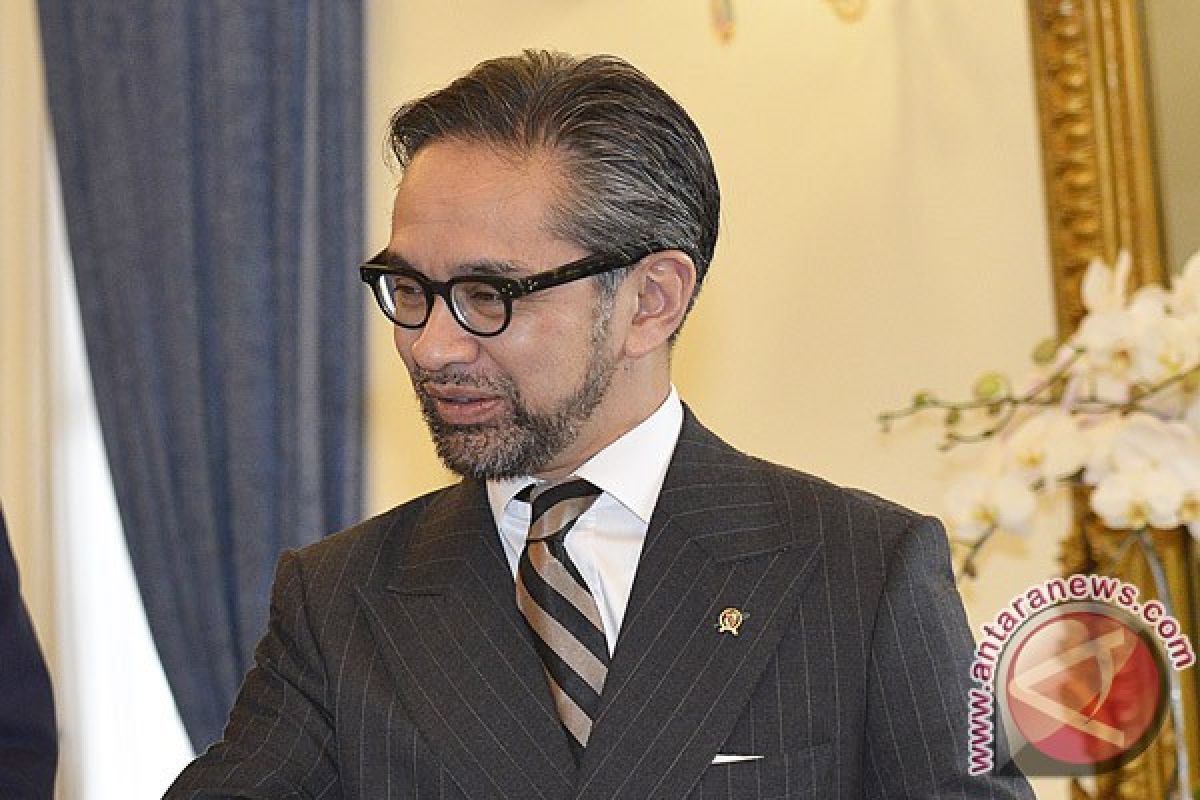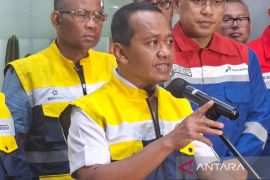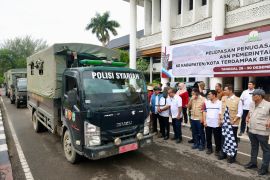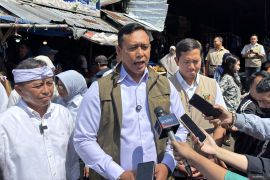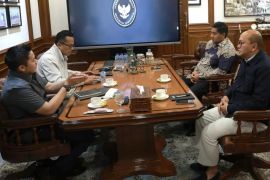"It is time for Australia to decide whether to consider Indonesia as a neighbor and friend or as an enemy. Just because they have the technology (for tapping conversations), does not mean they must do it," Marty said.Jakarta (ANTARA News) - Bilateral ties have been strained in the wake of Australias phone-tapping activities on Indonesian officials, noted Indonesian Foreign Affairs Minister Marty Natalegawa here on Monday.
Marty was commenting on a report published by the New York Times, which stated that Australia had spied on Indonesian officials during a trade dispute with the United States. The report, which was based on a leaked document revealed by former US National Security Agency (NSA) contractor Edward Snowden, claimed that Australian spies had tapped the conversations between Indonesian officials and its US lawyers. The Australians then offered the information to the NSA.
"It is extremely difficult to comprehend how talks between Indonesia and the United States on the shrimp issue had any direct implications on Australias security that they decided to spy on us," Marty remarked after meeting with the US State Secretary John Kerry today.
Marty also criticized Australias approach on the spying row with Indonesia emphasizing that Australias actions were against the principles of friendship between the two countries.
"It is time for Australia to decide whether to consider Indonesia as a neighbor and friend or as an enemy. Just because they have the technology (for tapping conversations), does not mean they must do it," Marty reported.
When questioned about normalizing ties between Indonesia and Australia following the phone-tapping scandal, Marty hoped that Australia will come clean about its past tapping activities on Indonesia.
"Whats known and unknown should be clear to all, so that in the future, if such a revelation (leaked documents) arises, then all the consequences have been factored in," Marty added.
During the past few weeks, tensions between Indonesia and Australia have flared after it was revealed that Australia had tapped the private cell phones of President Susilo Bambang Yudhoyono, First Lady Ani Yudhoyono, and several Indonesian ministers back in 2009.
Responding to the allegations, Indonesia recalled its Ambassador to Australia Nadjib Riphat Kesoema and temporarily stopped military and intelligence cooperation with Australia. Indonesia has also stopped cooperating on the issue of handling illegal immigrants heading for Australia, which is a major political issue for the latter.
President Yudhoyono sent a formal letter to the Australian Prime Minister Tony Abbot demanding a public explanation for the spying allegations.
Meanwhile, while addressing the Australian parliament, Prime Minister Abbot refused to apologize to Indonesia on the spying scandal. He also emphasized that the spying activities were conducted to protect the interests of Australia and its allies and was not intended to harm other countries.(*)
Editor: Heru Purwanto
Copyright © ANTARA 2014
